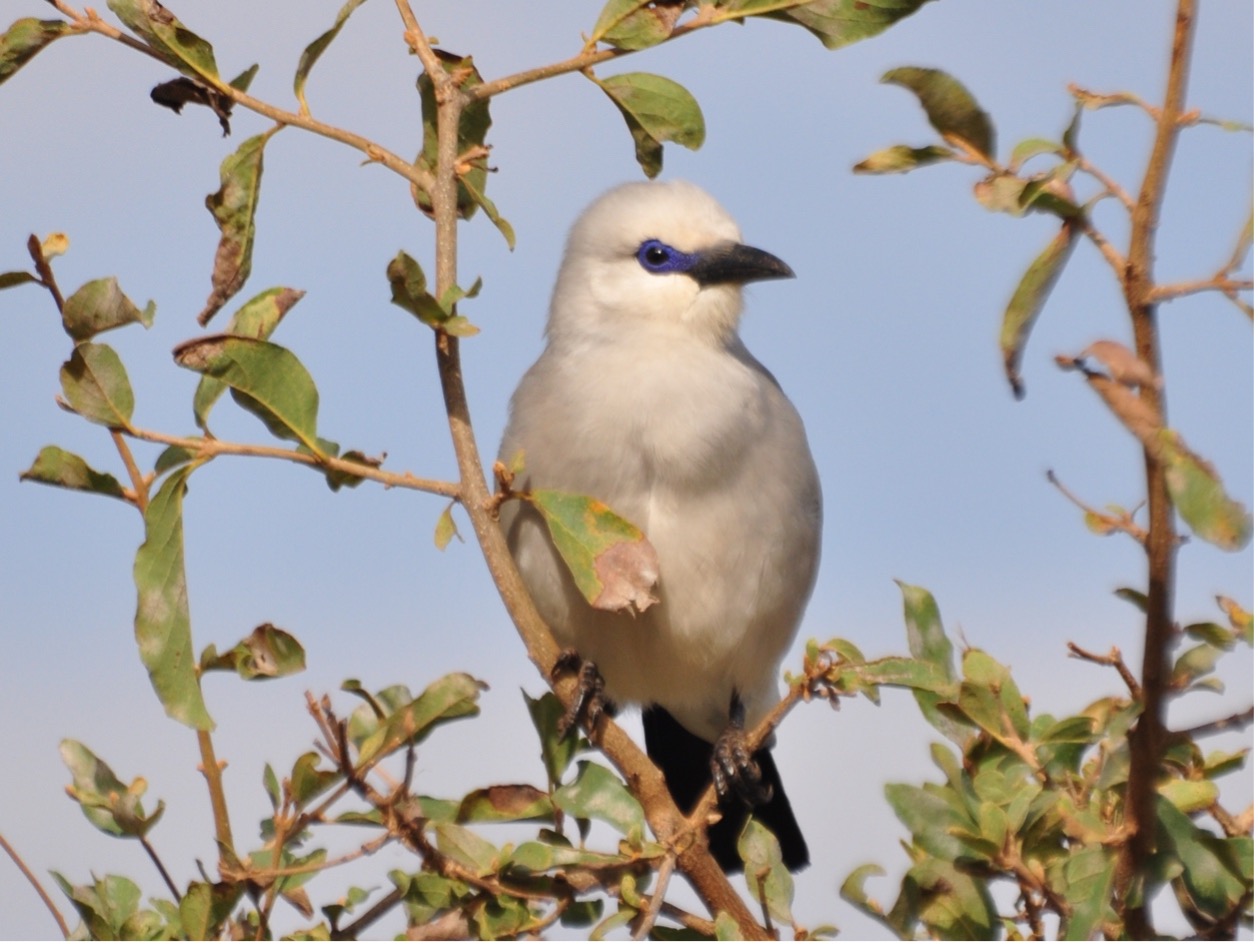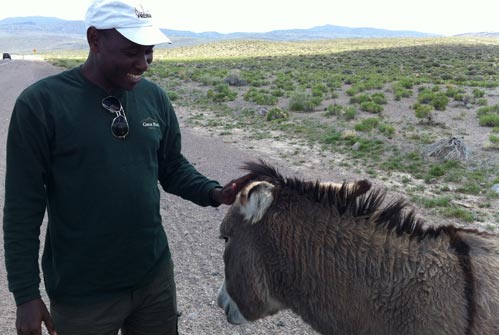 |
|
Stresemann's bushcrow @Yavelo, Ethiopia (picture by Ludwig Siege |
Africa has a spell-binding diversity of languages, ecosystems, and species. Its species richness is congruent with the latitudinal biodiversity gradient hypothesis i.e., biodiversity across many taxonomic groups increases towards the equator. This can be attributed to relatively long periods of geologic and climatic stability, among other natural processes. However, climate change, in addition to overexploitation, habitat loss and destruction, has increased threats of extirpation of populations and species extinction. These biodiversity threats underscore the importance of taking urgent actions now to halt the extinction vortex and biodiversity loss. Many experts have cautioned that sustainable and impactful conservation efforts must be led by African experts, but this is contingent on capacity building for African conservation scientists.
Capacity building is the core objective of the Society for Conservation Biology Africa Section, since its establishment in 2005. The Section Board has taken appropriate steps to contribute to training and capacity building for African experts in their early career stage. The Board takes inspiration from past efforts which made the society what it is today. Capacity building is not limited to education but assumes different shapes, with real-world exposure, and experience. Here is a summary of the Section’s capacity building initiatives in the recent past with an outlook for the future.
The Section hosted the 30th International Congress for Conservation Biology (ICCB), between December 6 and 17, 2021. The meeting was an opportunity for African scientists to present their work and expand their network of potential collaborators. The meeting was attended by 1193 participants from 90 countries, with South Africa, Rwanda, and Kenya among the top 10 countries with the highest number of participants. During the Congress, the Section Board spent over $1000 to sponsor the registration of 33 African experts to attend the meeting. Attending scientific conferences provide a vital opportunity for informal capacity development through networking and prospects for research collaborations, as well as information exchange through scientific presentations. Furthermore, the e-mentoring programme organized a 2-part workshop on writing abstracts during the call for ICCB 2021 abstracts. This workshop provided training and support for over 50 early career experts to increase the chances of abstract acceptance for ICCB.
The Section’s e-mentoring programme is the first virtual mentoring programme in conservation biology discipline. Established in 2007, it has provided mentoring support for over 80 mentees across Africa in five sequential phases. Mentees reported successful publication of their work, and receiving competitive research grants through the support this programme brings. The 6th phase of the e-mentoring programme is set to start in April 2022. Beyond e-mentoring, the Section Board recently established an Education Programme which will subsume the existing e-mentoring, but also offer a wide variety of professional development training courses and workshops. These courses will range from general skills such as proposal writing, CV formatting, and project management, among others, to specialized training courses on ecological modeling, IUCN red listing of species and ecosystems, Bayesian modeling, conservation genetics, and phylogenetics, among other courses. Attendees will receive certificates of completion and become eligible for the Section’s research grant. It is hopeful that these training programmes will commence in the second half of 2022.
SCB Africa Section is actively involved in the editorial work and publications in the three journals owned by SCB. Members enjoy a 20% discount on publication fees as well as a limited total publication fee waiver for low-income researchers. This benefit is worth over $2000 in publication fees that non-members pay for their publications. Much conservation research in Africa tends to address questions at a fine spatial resolution (small study extent) and/or on a single species. Conservation Biology does not accept such manuscripts for publication, but they are appropriate for Conservation Science and Practice. The African Conservation Telegraph (ACT), the Section newsletter, has published high quality articles for almost a decade now and is no lesser a platform to disseminate meaningful environmental articles. We encourage members to take advantage of these platforms to get their work published. Additionally, African SCB members are well represented in these journals as reviewers, associate editors, and senior editors, providing objective feedback on manuscripts.
Building on the momentum from hosting the ICCB, the SCB Africa Section is partnering with the SCB North America Section to organize the first ever African Diaspora Biodiversity Symposium. The symposium will bring together academic faculty and graduate students of African descent in North America, as well as NGOs that fund or implement conservation projects in Africa. The goal of this symposium is to brainstorm on increasing collaborations between African experts in the Diaspora and conservation experts in African countries, as well as enhance African Diaspora contribution to conservation science, practice, and policy in their African home countries. This symposium is supported by the USAID, the African Biodiversity Collaborative Group (ABCG), and many university-based Centers for African studies across the United States. The symposium will be held during the 6th North American congress for conservation biology (NACCB), between July 16-21 in Reno, Nevada, United States. The success of this symposium will inspire similar events in Europe.
The Young Women in Conservation Biology (YWCB) group is the first global effort to address under-representation of African women in conservation science. The group was formed in 2005 and has facilitated the rise of many early career women in conservation-related fields through networking, mentoring, training workshops, and the YWCB award. The Section Board is excited to revive the YWCB award by codifying it as a regular biennial award in even years starting in 2022.
In recent years, SCB Africa Section has spent over $4000 to pay for SCB membership for several African experts, and a total of $3000 in research grants for six graduate students across Africa. This year, we look forward to spending more for free SCB membership and conservation research grants for African graduate students. The membership grants will prioritize nationals of African countries with an existing SCB Chapter to strengthen these Chapters. Other tangible benefits the Section Board include circulation of announcements on research grants, funded graduate education, and research and job opportunities to members, through the group’s email list and social media platforms.
As always, we work towards our goal to empower African experts to take bold, decisive steps, with good skills to support the conservation of African biodiversity.
